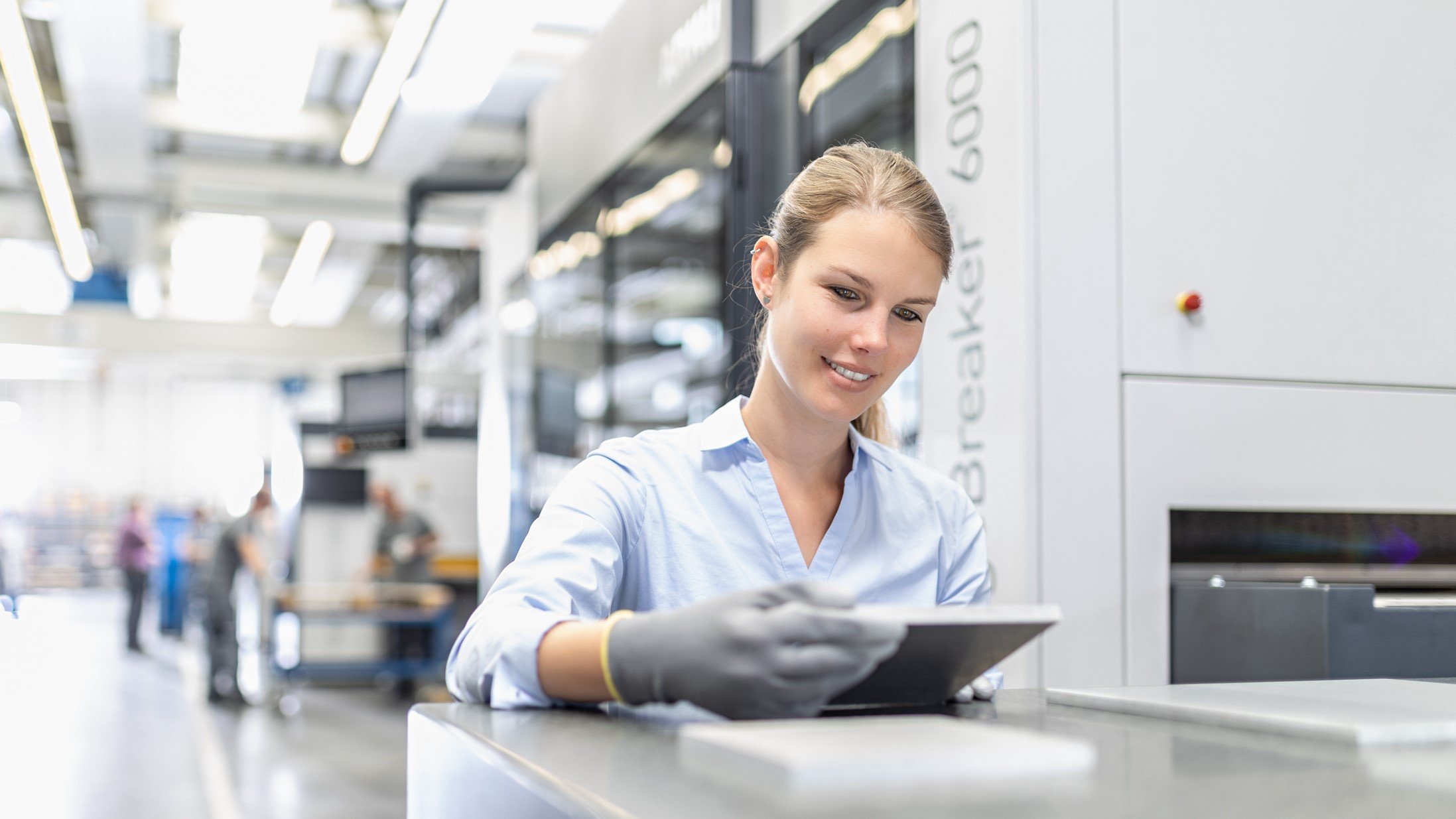Deburring as a process step is often enough unavoidable during sheet metal processing. Nevertheless, it can often be optimized economically. There are several ways to do this.
A deburring machine quickly pays for itself
The first question to ask is whether a deburring machine is profitable. Compared to manual deburring, this question can be answered relatively quickly with a "yes": even with less than 500 hours spent on deburring per year, most scenarios are economically justifiable. This is because a deburring machine works much more efficiently than a person. It handles an estimated four times as many parts in the same amount of time as a person would by hand. This means a clear advantage in terms of profitability.
Profitability can be increased even further by automating the loading and unloading of the deburring machine. Depending on the configuration of the system, manual loading and unloading of the parts and sheets accounts for the largest proportion of the parts costs. A vision robot can handles this task, even with changing part geometries and sizes. Skilled labor, which is already scarce, can now devote itself to more important tasks instead of monotonous activities.
Double-sided deburring is more economical
It is also important to clarify whether a deburring machine that processes material double-sided is suitable for the task. It saves at least 30 percent of the time because the parts only have to pass through the machine once and don't need to be turned over for a second pass. However, not all parts are suitable for a double-sided deburring machine. A single-sided deburring machine can also be the right choice for particularly uniform deburring..
The tools can also make a decisive contribution to increasing efficiency. This is especially true if an existing deburring machine is to be optimized. Reliable processing results can then be achieved with the right tool set, or you can increase the throughput of parts. The Wizard software from ARKU is a practical aid for tool selection, although it cannot be retrofitted. Based on just four parameters entered by the operator, it calculates the most suitable tool and the optimum throughput speed as well as recommended adjustment settings. This allows operators to achieve the desired results the first time around with low tool wear.
Economical edge rounding increases efficiency and product quality
However, the wear of the processing tools in the deburring machine and the processing time can be influenced at the design stage. This can be done by rounding the edges as little as possible. This is because with a double radius of edge rounding, the material removal increases fourfold. So if you only round as much as necessary, you protect your tools and can have the parts and sheets processed more quickly.
It is not possible to generalize about the parts costs of deburring. This is because the shares of depreciation, labor, maintenance, spare parts and other factors vary depending on the machine configuration. However, there are trends that apply to most applications:
- The higher productivity of the deburring machine compared to humans,
- The savings with deburring machines that work double-sided compared to single-sided processing or
- The relatively low proportion of tool costs with a high influence on quality and throughput.
All in all, it is worth taking a closer look at deburring processes. Often enough, there is still room for economic optimization.



